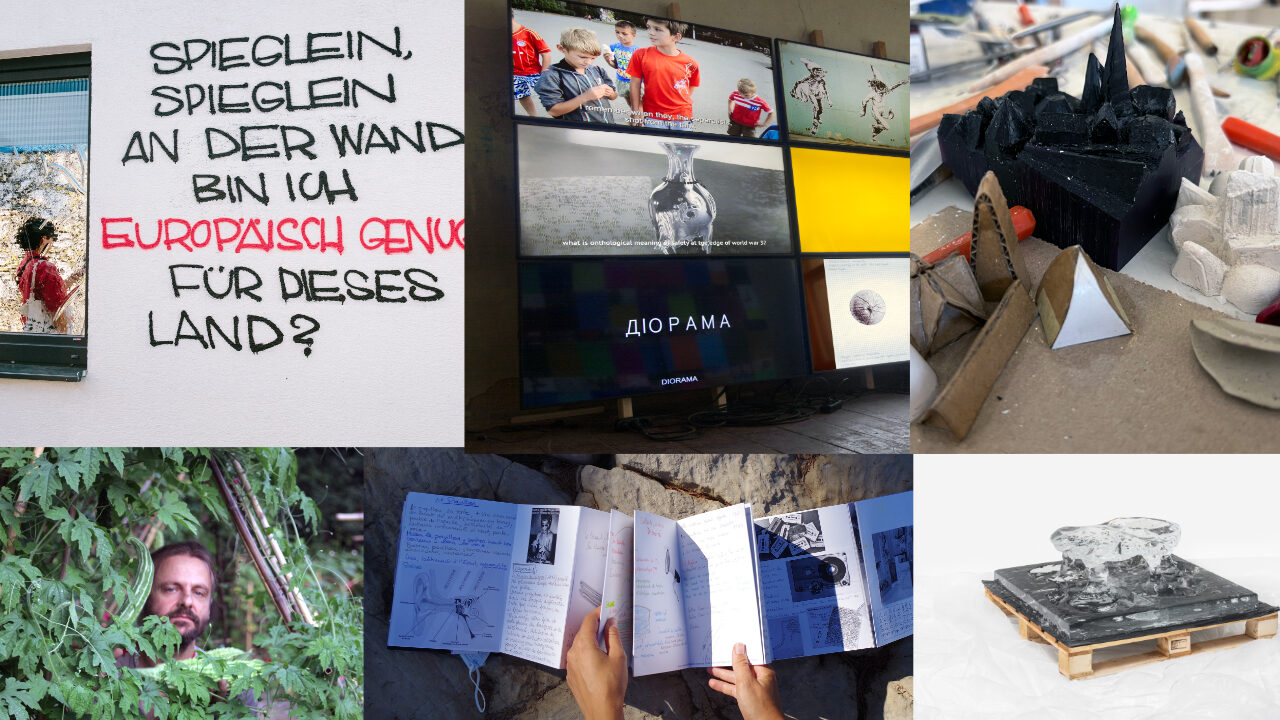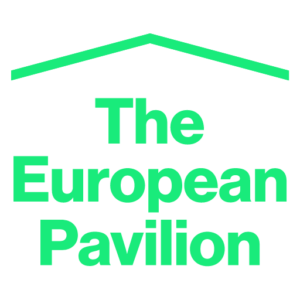The European Pavilion: a three-day artistic event in Rome
8 Nov 2022
17-19 November 2022

The European Pavilion in Rome, was a three-day artistic programme organized from 17 to 19 November 2022 in collaboration with Fondazione Studio Rizoma, and generously hosted by our partners Bibliotheca Hertziana – Max Planck Institute for Art History, Goethe-Institut, German Academy Rome Villa Massimo, Académie de France à Rome Villa Médicis, Istituto Svizzero, Museo delle Civiltà and NERO.
The European Pavilion is a programme by the European Cultural Foundation that facilitates spaces for experimentation and reflection on Europe. It stems from the conviction that we need a European art platform to continuously think and challenge what Europe means today and what it can become tomorrow. Every two years, together with foundation partners, the ECF supports cultural organizations across Europe who develop new artistic programmes and commissions that shed new lights on Europe and imagine our shared future. All projects are then presented on the occasion of a major art event, this year it was in Rome.
Over the course of three days, artists, thinkers and researchers from all over the continent came together in a programme that offered panel discussions, talks and workshops, music performances, a virtual reality environment, as well as sculptural and multimedia installations.
Questions were addressed such as: How, through the metaphor of the pavilion, can we rethink the space and the landscape of Europe? What does a European Pavilion look like and what can it mean? In French, the word pavilion also refers to the visible architecture of our ear: the part that allows listening. With this in mind, the programme paid particular attention to the rich diversity of languages and voices that make up Europe, including and especially those that are too often silenced or marginalised.
Thinking about Europe today is not possible without also taking into account the challenges faced by our continent, not least those posed by the war in Ukraine. While in Rome, we drew inspiration from collective and individual initiatives engaged in efforts of overcoming colonialism and the struggle against any forms of exploitative and discriminatory politics, and forced displacement.
Take a look back at The European Pavilion in Rome
EuroNews featured The European Pavilion in Rome in their Culture section. See below to watch films and interviews from EuroNews to learn more about The European Pavilion in Rome’s programme, events, exhibitions, and workshops.
Read a report on The European Pavilion in Rome by our intern Clara Lizasoain. She studied Fine Arts in the Universidad Complutense de Madrid and with a MA in Contemporary Art History and Visual Culture at the Museo Reina Sofía in Madrid.
Watch The European Pavilion in Rome after-movie below.
Contributors:
Maria Thereza Alves (artist), Francis Alÿs (artist), Sepake Angiama (artistic director of iniva), Adjoa Armah (artist, educator, writer), Armature Globale (architectural studio), BB with Tomaso De Luca (architectural studio), Eva-Mari Bertschy (curator), Cairo Clarke (curator, writer), Ludovica Carbotta (artist), Julie Chénot (director, Camargo), Jasmina Cibic (artist), Leone Contini (artist), Leyla Dakhli (historian), Luke de Noronha (writer and academic), Liza Dieckwisch (artist, Rome Prize Fellow Villa Massimo 2022/23), Rajana Dugar-DePonte (journalist, co-founder of the human rights movement ‘Erkhe’), Fantastic little splash (artists collective), Jérôme Felici (co-funder of Oenope), Ylva Gislén (poet), Gabrielle Goliath (artist), Jana Graul (art historian), Natalia Hecht (community artist, curator), Nilas Heinskou (journalist), Tymon Holgeneest & Jesse van der Ploeg (architectural and design studio), Anton Karyuk (artist), Rafis Kashapov (founder of the Free Idel-Ural movement), Diana Khalilova (artist), Aleksander Komarov (artist), Anna Khvyl (musician, curator of Women Sound), Giuseppe Laterza (publisher), Anna Livia Friel & Marco Provinciali (EUPavilion collective), Matteo Lucchetti (curator), Gracie Mae Bradley (human rights campaigner and policy expert), Caroline Meyer-Picard (choreographer), Fariba Mosleh (curator), Marina Naprushkina (artist), Lola Olufemi (writer), Olesia Onykiienko (musician, curator of Women Sound), Diogo Passarinho Studo (architectural studio), Plan Común (architectural studio), Mykola Ridnyi (artist), Cia Rinne (artist), Monica Sassatelli (sociologist), Marcus Schmickler (composer, Rome Prize Fellow Villa Massimo 2022/23), Igor Sevcuk (artist), Leman Sevda Darıcıoğlu (artist), Something Fantastic (architectural studio, Rome Prize Fellow Villa Massimo 2021/22), Olia Sosnokskayaten (artist), Maria Stoianova (artist), Nastia Teor (artist), TEN (architectural studio), Maxim Tyminko (artist), Carlo Ugolotti (historian), Evita Vasiljeva (artist), Fabian Wagner (architect, Rome Prize Fellow Villa Massimo 2022/23), Johan Widén (artist), Matthias Weiss (art historian), Hervé Youmbi (artist).
The programme is co-curated by European Cultural Foundation Programme Manager Lore Gablier and Ukrainian curator Lesia Kulchynska, in close collaboration with all participating organisations: Ambasada Kultury (Berlin-Vilnius), ARNA (Sweden), Brunnenpassage (Vienna), EUPavilion (Rome-Zürich), Fondazione Studio Rizoma (Palermo-Rome), Iniva (London), L’Internationale (Madrid, Warsaw, Barcelona, Ljubljana, Eindhoven), OGR (Turin), State of Concept (Athens) and Studio Wild (Amsterdam).
Looking forward to seeing you in Rome!
Credits:
The European Pavilion in Rome is organized by the European Cultural Foundation in collaboration with Fondazione Studio Rizoma and is generously hosted by our partners Bibliotheca Hertziana – Max Planck Institute for Art History, Goethe-Institut, German Academy Rome Villa Massimo, Académie de France à Rome Villa Médicis, Istituto Svizzero, Museo delle Civiltà, and NERO.
Launched in 2021, the European Pavilion is an initiative by the European Cultural Foundation supported by Fondazione CRT and developed in partnership with Camargo Foundation and Kultura Nova Foundation.
In 2021-2022, The European Pavilion is supported by Fondazione CRT and developed in partnership with Camargo Foundation and Kultura Nova Foundation.

